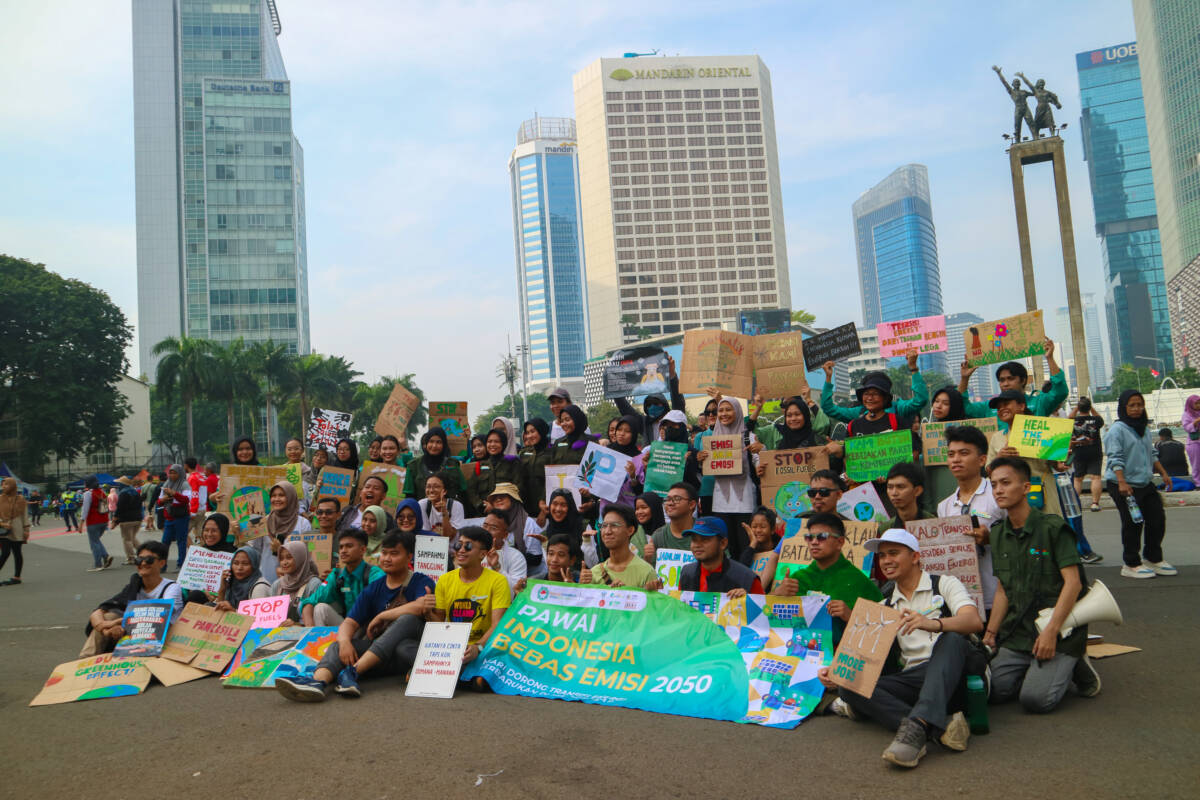Jakarta, 2 June 2024 – Young people have flexibility and the desire to be involved in activities that interest them. One of the current concerns for young people is environmental issues.
Young people’s anxiety about the increasingly disturbing environmental conditions was expressed in poster messages carried at the Emission Free Indonesia 2050 parade (2/6/2024) in the Sudirman Thamrin car free day (CFD) area. This march was initiated by the Clean Energy Generation (Generasi Energi Bersih, GEN-B – red) youth group supported by the Institute for Essential Services Reform (IESR), the Department of the Environment, Faculty of Law, University of Indonesia (DLH FH UI), Enter Nusantara, and Climate Ranger who are members of the Coalition Emission Free Indonesia (Koalisi Indonesia Bebas Emisi – KIBE) 2050.
Representatives from this coalition also held hearings and conveyed their aspirations to the Ministry of Energy and Mineral Resources (KESDM). One of the coalition’s demands is the urge for the government to implement a decarbonization policy, especially the energy system in a more comprehensive manner, including the use of renewable energy to meet Indonesia’s zero-emission target by 2060 or sooner.
To support this big goal, the supporting ecosystem includes the use of power storage technology such as pump hydro energy storage (PHES), battery energy storage system (BESS), as well as innovative funding for renewable energy projects. KIBE 2050 also underlines demands to accelerate the early phase-out of coal-fired power plant operations in Indonesia.
Riyan Nurrahman, GEN B Campaign Coordinator, stated that the Ministry of Energy and Mineral Resources must also be a facilitator of harmonization of decarbonization targets between ministries.
“The existence of different targets between ministries has hampered decarbonization efforts to achieve net zero emissions,” said Riyan.
Agus Cahyono Adi, Head of the Bureau of Communications, Public Information Services and Cooperation (KLIK) KESDM who received representatives of audience participants this time stated that his party appreciated the aspirations expressed and that his party would continue them.
“There are many recommendations and multi-sectors, so we will continue with the related sections,” he said.
Agus also emphasized that the energy transition requires collective efforts from all parties, both across agencies and across generations. For this reason, the involvement of young people in various capacities is important and relevant.

